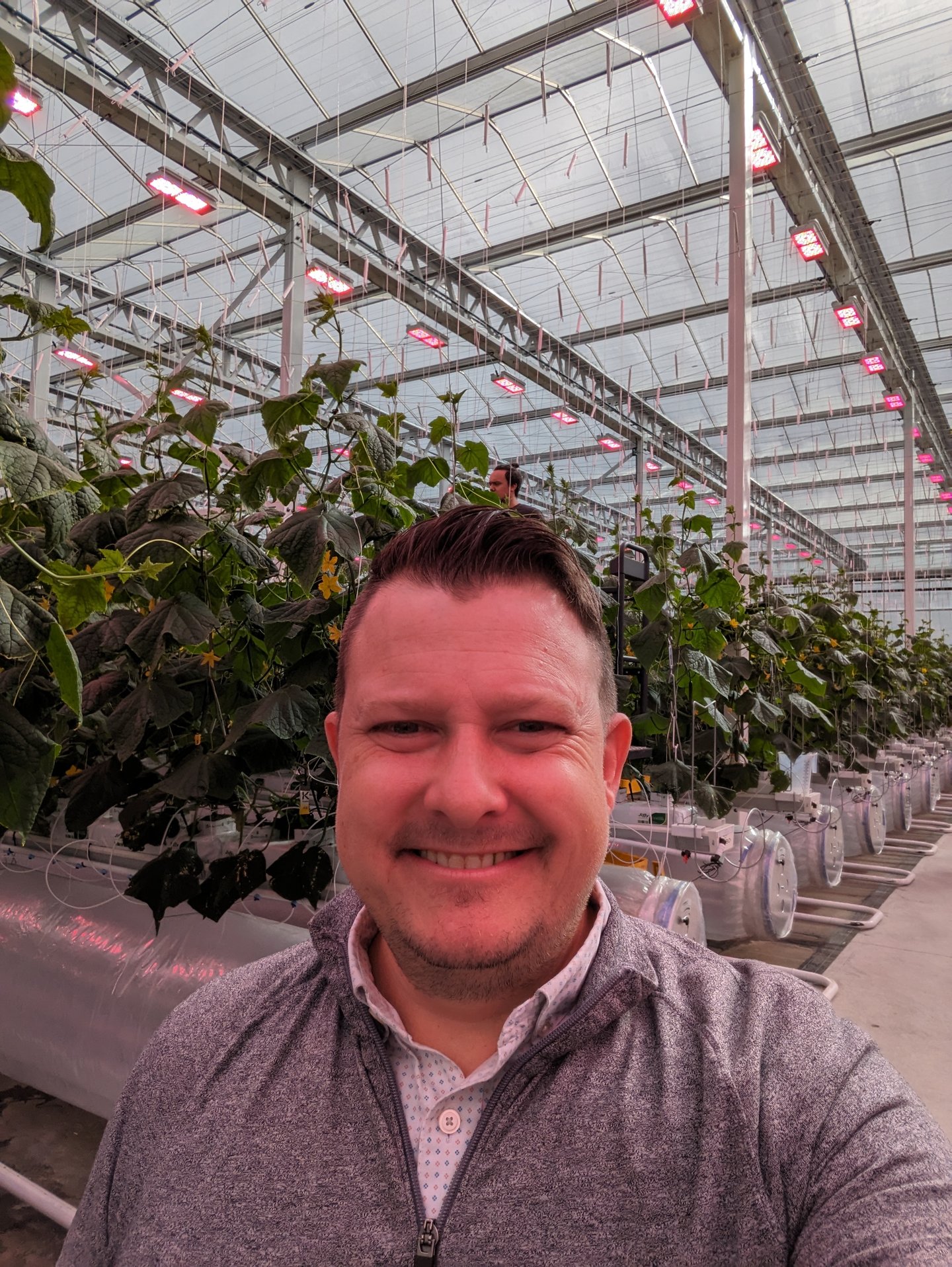My Grocery Gig: Walmart Canada’s Patrick Barclay, senior category manager
Job title: Senior category manager of fresh vegetables at Walmart Canada
Age: 40
Location: Ontario
Where were you born and raised?
In the sleepy town of Beaverton, Ont. When I was growing up, maybe 1,800 people lived there, and the only job you could get as a 15-year-old was stocking shelves at the grocery store. I continued working at grocery stores to help pay for my tuition when I went to university.
What did you study?
Kinesiology. I wanted to be a chiropractor. My family was big into visiting the chiropractor, and it helped me when I had issues with my knees playing youth sports. But while studying out West, I realized some aspects of kinesiology weren’t for me, and that I love food’s role in supporting health. I was also working with Capers Community Market, which focuses on natural health food and thought, “This could be a career for me.”
READ: Lufa Farms opens greenhouse on roof of Walmart, Decathlon building in Montreal
You worked your way up in the grocery sector. When did you first get the call from the produce department?
I was working at a Save-on-Foods store out West, primarily in dairy, when they had sick calls and I was asked to cover. Everything is dying from the second you start looking at produce – you have to work the product hard, touching it again and again to make the product something that the customer wants. To be successful, you need to be fluid like water as Mother Nature changes things on the fly. And I love that aspect of produce, never quite knowing what my day will be.
Was there a learning curve to that world?
The most exotic produce when I was growing up was kiwi! And so, having moved to Vancouver, with all the food stalls at Granville Island and the exotic foods at the night markets, you realize there’s a whole wider world of produce to discover. The learning opportunity couldn’t have had a more beautiful setting.
You eventually returned to Ontario, transitioning to procurement and merchandising. Tell us about that.
I started working for local mom and pop shops in Kitchener-Waterloo, and found an organic imprint lacking in a lot of stores and began partnering with organic farmers in the area. I built a big program at one store where young mothers were asking for organics. I became known as the guy that will try new things, so I’d get approached by people foraging things like Fiddleheads and puffball mushrooms. I would look to understand how the produce could be part of meals and then position it to customers.
READ: How tech is helping produce and profit margins
Where did your journey take you next?
From there, I found Goodness Me! One of the core tenets of their produce program was everything had to be organic. I joined the team as department manager for a new Waterloo store, and during my training met their director of supply chain and the buyer desk for produce happened to open up. Goodness Me! had an edict that you couldn't shift roles within six months of joining, and I was really new, but I presented myself anyway, saying that role is where I’d want to get to anyway. After going about a month and half without finding anyone, they asked me to take it on!
You joined Walmart in 2019 after four years at Goodness Me! What made you make the move?
I remember telling my colleagues and they said, “That’s about as far as what we are as you can get! What are you going do there?” And I said, “I am going to go in, be me and do things that I love to do and hopefully that’ll start to be reflected in your local Walmart.” I loved the idea of the scale of Walmart, making decisions that impact the lives of many Canadians. It felt like a huge opportunity.
Do you see organic making further inroads at Walmart?
The disparity between organic pricing and conventional pricing has come down even in the last five years. There are even times now when organic items are cheaper than conventional because of the growth of organic producers in the industry, leading to supply flushes beyond typical market demand. I think the gap will always exist to a degree, though, as there are still fewer producers of organics than conventional. Size and scale generally dictate availability and cost.
What do you when you're not thinking about produce?
I like to say my full-time job is being a dad, my part-time job is everything else around it. But I like woodworking. I built a 16 x 12-foot barn in my backyard. I live in Stratford and commute into the office, and so during the pandemic I dedicated the time typically spent each day driving on a project around the house. Eventually I got to all these woodworking projects, like the barn. It’s nothing I do for anyone else but myself.
What do you hope to do more of in your career?
Produce is in my blood, and so I’m here for the now and I’m here for the future. I would love to get more ingrained with vendors, helping to bring their story to retailers. At the end of the day, farmers feed people, and I want more produce to get to more people, and further close the loop on food waste. That is the goal currently in my role and will be in the future.
Careers in grocery are as diverse as the products that line store shelves. From the frontlines to the c-suite, a job in food retail can bring about many opportunities. Canadian Grocer’s new series, My Grocery Gig, will profile people from across the industry about what they do and why they’re passionate about their profession. Have a pitch? Send it to digital editor Jillian Morgan.




